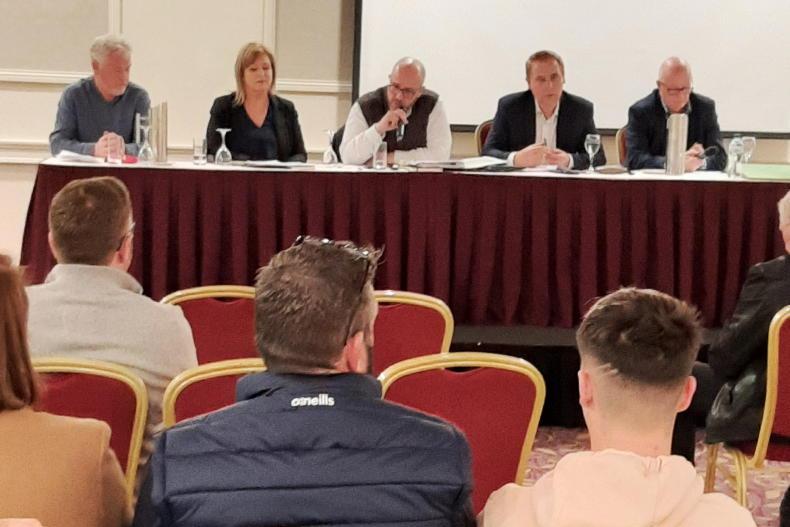Sinn Féin MEP Chris MacManus has reiterated that he will not vote for the controversial nature restoration law as it is currently framed.
Speaking at a Sinn Féin information meeting in Claremorris on Monday night, the Midlands and Northwest MEP said that he could not support the “mandatory rewetting” of farmland which is a key element of the proposed law.
Amendments tabled last week would see a 33% increase in the area of Ireland’s farmed peatlands to be rewet by 2050. The target had been 105,000ha, but it is now proposed to be increased to 140,000ha.
“I’ll not be supporting mandatory rewetting,” MacManus told the meeting. And he insisted that he will be “trying to fight the farmers’ corner” on the issue.
One-size-fits-all attitude
He said the proposed legislation was informed by a “one-size-fits-all” attitude to legislation in Brussels, which he described as one of the weaknesses of the EU.
The Sinn Féin MEP also pointed out that the recent amendments tabled to increase the area to be rewet were being driven by the environmental lobby in bigger member states such as France, Germany and Spain - which he maintained were the “dominant voices” on environmental matters.
However, MacManus stressed that it will be “a long, slow process” in getting the nature restoration law from the parliament’s environmental committee to becoming European Commission regulation.
Full session
He explained that the law will have to pass a full session of the European Parliament, before going into trialogue discussions between the parliament, the council of ministers and the Commission.
The nature restoration law and rewetting dominated much of the exchanges at the meeting, which was also attended by Sinn Féin TD Rose Conway-Walsh, Mayo county councillor Gerry Murray, Vincent Roddy of the Irish Natura and Hill Farmers Association (INHFA) and the former chair of Knock Airport Liam Scollan.
If CAP payments are keeping me farming, but are stopping me rewetting, then those supports could potentially be withdrawn
In response to comments from the floor that rewetting had the potential to decimate farming across the west and northwest, INHFA president Vincent Roddy warned that there are other elements in the nature restoration law that deserve attention.
Roddy pointed out that Article 4 of the law stipulated that if CAP supports were found to be impeding the environmental goals of the legislation, then those payments could potentially be pulled.
“The article states that where there are supports which are deemed to be counterproductive, then these CAP payments could come under pressure,” he said.
“For example, if CAP payments are keeping me farming, but are stopping me rewetting, then those supports could potentially be withdrawn or repurposed in the future,” he explained to the Irish Farmers Journal after the meeting.
Roddy also pointed out to those in attendance that there was no “new money” for rewetting or for the other proposed actions required by the nature restoration law.
Meanwhile, both Scollan and Murray berated the performance of successive governments and various government departments in the areas of rural development and support for enterprise beyond the east and south of the country.







 This is a subscriber-only article
This is a subscriber-only article










SHARING OPTIONS: